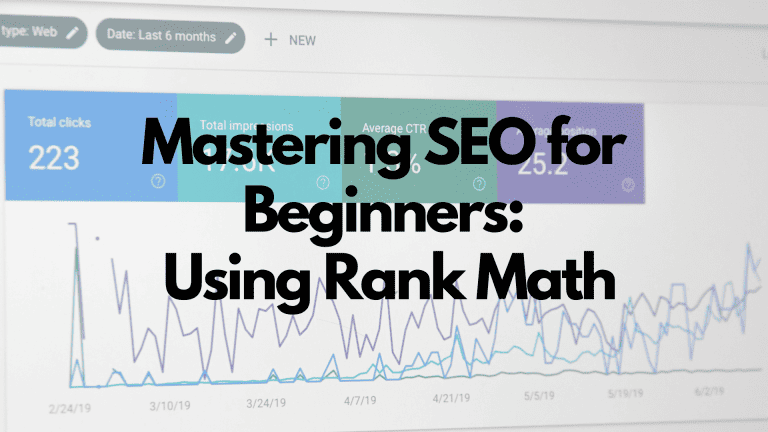
Affiliate marketing serves as a bridge between product or service providers and potential customers, leveraging the influence of individuals or entities to drive sales.
It enables businesses to tap into wider audiences, harnessing the power of diverse marketing channels.
Affiliates, in turn, benefit by earning passive income through successful conversions.
The flexibility of affiliate marketing makes it accessible to individuals with various skill sets, from social media influencers and bloggers to seasoned digital marketers.
As affiliate marketing grows in complexity and competition, the need to automate your affiliate marketing business becomes paramount.
Automation streamlines repetitive tasks, allowing marketers to focus on strategy, creativity, and relationship-building.
Scaling an affiliate marketing business manually can be time-consuming and prone to errors.
Automation brings efficiency, accuracy, and scalability, enabling marketers to expand their reach and maximize returns on investment.
From tracking analytics to managing campaigns and communications, automation tools empower affiliates to navigate the dynamic landscape of digital marketing with agility and precision.
The Need for Automation in Affiliate Marketing
Manual affiliate marketing is plagued by several challenges that can hinder growth and optimization.
Tracking affiliate performance and attributing conversions accurately can be labour-intensive and prone to errors.
Timely communication with affiliates to provide updates, promotional materials, or address concerns is challenging at scale.
Furthermore, adapting strategies based on real-time data and market trends becomes impractical with a manual approach.
These challenges can result in missed opportunities, decreased efficiency, and a failure to fully capitalize on the potential of the affiliate marketing model.
Automation presents a comprehensive solution to the challenges of manual affiliate marketing.
Tracking and attributing conversions can be seamlessly handled through automated tracking systems, ensuring accurate and real-time performance analysis.
Automated communication tools enable efficient and timely interaction with affiliates, providing updates, sending promotional materials, and addressing concerns without manual intervention.
Moreover, automation allows for dynamic adjustments to marketing strategies based on data insights, ensuring that campaigns remain agile and responsive to market changes.
By leveraging automation, affiliates can overcome the limitations of manual approaches, unlocking the full potential of their marketing efforts and achieving sustainable growth in the competitive landscape of affiliate marketing.
Implement Email Marketing Automation
Email marketing plays a crucial role in affiliate marketing by serving as a direct and personalized communication channel between affiliates and their audience.
Effective email strategies can nurture leads, provide valuable content, and drive conversions.
Affiliates use emails to share promotional materials, highlight product features, and communicate exclusive offers to their subscribers.
Building and maintaining a robust email list allows affiliates to cultivate a loyal audience and capitalize on repeat business, making it an integral part of any successful affiliate marketing strategy.
To streamline and enhance the effectiveness of email marketing in affiliate campaigns, leveraging automation tools is essential.
Platforms like GetResponse offer features that enable affiliates to automate various aspects of their email campaigns.
These tools allow for the creation of drip campaigns, personalized sequences, and targeted messaging based on user behaviour.
Automation helps affiliates schedule emails at optimal times, segment their audience for more targeted communications, and analyze performance metrics to refine their strategies.
Schedule Social Media Posts
Social media plays a pivotal role in the success of affiliate marketing strategies, acting as a dynamic platform for engaging with a target audience and driving traffic to affiliate products or services.
The widespread use of social media platforms allows affiliates to build and cultivate a community around their niche, fostering trust and credibility.
Through strategic content sharing, affiliates can seamlessly integrate promotional materials, recommendations, and affiliate links into their posts, reaching a broader audience and driving conversions.
The real-time nature of social media also enables affiliates to stay current with industry trends, tailoring their approach for maximum impact.
Efficiently managing social media presence is also crucial in affiliate marketing, and leveraging tools for scheduling and automation can significantly streamline this process.
Platforms like Hootsuite, Buffer, and Later offer comprehensive solutions, allowing affiliates to plan and schedule posts across various social media channels in advance.
These tools not only save time but also ensure a consistent and strategic posting schedule, maximizing visibility and engagement.
Additionally, features like content calendars, analytics, and post customization enhance the effectiveness of social media campaigns.
By automating routine tasks, affiliates can focus on creating compelling content and building meaningful connections with their audience, ultimately driving more successful affiliate marketing outcomes.
Leverage Chatbots for Customer Queries
Chatbots have emerged as valuable tools in enhancing user experience across various online platforms, including affiliate sites.
These AI-powered virtual assistants provide immediate and personalized responses to user queries, significantly improving customer engagement.
By offering real-time assistance, chatbots contribute to a seamless and efficient user journey, addressing common questions, guiding users through the site, and even recommending relevant affiliate products or services.
The 24/7 availability of chatbots ensures that users receive support at any time, fostering a sense of convenience and reliability.
Additionally, chatbots can analyze user interactions to gather valuable insights, enabling affiliates to refine their strategies and provide an increasingly tailored and satisfying experience for their audience.
Integrating chatbots into affiliate sites requires a thoughtful approach to ensure they enhance rather than disrupt the user experience.
Start by identifying common user queries and creating conversational scripts that align with the affiliate marketing goals. Implementing a user-friendly interface with clear calls-to-action can guide visitors to interact with the chatbot seamlessly.
It's crucial to strike a balance between automation and personalization, ensuring that chatbots provide relevant and context-aware responses.
Regularly update the chatbot's knowledge base to keep it informed about the latest promotions, products, and industry trends.
Lastly, monitor user interactions and gather feedback to continually refine the chatbot's performance and optimize its contribution to the overall affiliate site experience.
Use Analytics and Reporting Tools
The significance of data-driven decisions cannot be overstated in the world of affiliate marketing.
Analyzing data provides valuable insights into the performance of affiliate campaigns, allowing businesses to make informed strategic decisions.
Data-driven decision-making enables marketers to identify successful channels, understand audience behaviour, and optimize campaigns for maximum impact.
It helps in allocating resources efficiently, focusing on high-performing affiliates, and refining promotional strategies.
By relying on data, businesses can adapt to market trends, enhance the customer experience, and ultimately achieve better ROI on their affiliate marketing efforts.
It's the key to staying agile in a dynamic online landscape, ensuring that marketing strategies align with the ever-changing needs and preferences of the target audience.
To harness the power of data, affiliate marketers employ various analytics and reporting tools that automate the process of collecting, analyzing, and presenting key metrics.
Google Analytics is a foundational tool, that offers insights into website traffic, user behaviour, and conversion rates.
If you are concerned about online privacy Fathom is an excellent choice.
Additionally, tools like Tableau and Google Data Studio allow the creation of visually compelling reports that consolidate data from multiple sources.
These tools not only streamline the analysis process but also empower marketers to communicate insights effectively, facilitating data-driven discussions and informed decision-making within the affiliate marketing ecosystem.
Automate Content Creation
Content automation has become integral to affiliate marketing strategies, streamlining the creation process and ensuring a consistent flow of engaging material. Various tools and platforms cater to different aspects of content automation.
Content creation platforms like Contently and ClearVoice offer the ability to connect with freelance writers, manage workflows, and maintain editorial calendars efficiently.
For social media automation, Buffer and Hootsuite allow marketers to schedule posts, track engagement, and maintain a consistent online presence.
AI-powered content creation tools, such as OpenAI's GPT-4, generate written content based on input, providing a scalable solution for producing articles, product descriptions, and marketing copy.
Automated content creation in affiliate marketing brings forth numerous benefits, starting with increased efficiency.
By automating repetitive tasks, marketers can focus on strategy, analysis, and relationship-building.
Consistency is another key advantage, as automation ensures a steady stream of content, maintaining audience engagement and supporting SEO efforts.
Moreover, automated content can be tailored to specific audience segments, providing a personalized experience that resonates with diverse target groups.
The ability to scale content production is a significant benefit, allowing affiliates to reach wider audiences without compromising quality.
Ultimately, automated content in affiliate marketing contributes to a more agile and effective strategy, enabling marketers to adapt to changing trends and consumer preferences swiftly.
Optimize SEO Through Automation Tools
A well-optimized website is more likely to rank higher in search engine results, increasing the chances of attracting organic traffic.
For affiliates, this means a broader audience reach and increased opportunities for conversions.
SEO also fosters credibility and trust, as websites that appear prominently in search results are often perceived as more authoritative and reliable by users.
Automating SEO tasks is essential for affiliates seeking to streamline their optimization efforts and stay ahead in the competitive online landscape.
Tools like SEMrush and Moz offer comprehensive SEO analytics, keyword research, and backlink monitoring, providing valuable insights to guide optimization strategies.
WordPress plugins like Rank Math SEO automate on-page SEO elements, assisting affiliates in optimizing content without extensive technical expertise.
Additionally, tools like Ahrefs and Screaming Frog automate tasks such as site audits, helping affiliates identify and address issues that may impact their search engine rankings.
Automation not only saves time but also ensures that SEO efforts remain consistent and aligned with the latest search engine algorithms, contributing to sustained visibility and success in affiliate marketing.
Implement Retargeting Campaigns
Often, potential customers visit a website, and view products, but leave without making a purchase.
Retargeting allows marketers to re-engage these visitors by displaying targeted ads to them as they browse other websites or social media platforms.
This personalized approach keeps the affiliate products or services fresh in the minds of potential customers, encouraging them to return and complete the desired action, whether it's making a purchase or signing up.
By maintaining a consistent presence in the online spaces frequented by the target audience, retargeting reinforces brand awareness and fosters a sense of familiarity, significantly increasing the likelihood of conversion.
Automating retargeting campaigns is essential for efficiency and precision in reaching the right audience at the right time.
Platforms like AdRoll, Google Ads, and Facebook Ads provide robust retargeting features that enable marketers to create and automate campaigns seamlessly.
These platforms use pixel tracking and audience segmentation to tailor ads based on user behaviour, ensuring that retargeted content is relevant and engaging.
Automation allows for real-time adjustments, ensuring that the retargeting strategy remains dynamic and responsive to user interactions.
By harnessing the capabilities of these platforms, affiliate marketers can optimize their retargeting efforts, ultimately driving higher conversion rates and maximizing the impact of their affiliate campaigns.
Use A/B Testing Tools
A/B testing, also known as split testing, is a fundamental strategy in digital marketing optimization, including affiliate marketing.
Its significance lies in its ability to systematically compare variations of elements within a campaign to determine which performs better in terms of achieving the desired goals.
In the context of affiliate marketing, A/B testing allows marketers to experiment with different aspects such as headlines, call-to-action buttons, visuals, or even entire landing pages.
By exposing different segments of the audience to these variations, marketers can analyze the performance data to identify what resonates most effectively with their target audience.
This iterative testing process empowers affiliates to make data-driven decisions, refine their strategies, and optimize their campaigns for maximum impact and conversion rates.
Automating A/B tests is crucial for efficient and timely optimization of affiliate marketing campaigns.
Several tools offer comprehensive A/B testing functionalities, streamlining the process for marketers.
Optimizely is a robust tool that provides a user-friendly interface for setting up and managing A/B tests.
Additionally, platforms like VWO (Visual Website Optimizer) and Unbounce offer features specifically designed for A/B testing, enabling marketers to test variations of landing pages and fine-tune their affiliate marketing strategies.
By incorporating these tools into their workflow, affiliates can continuously refine their campaigns, ensuring they are always optimized for the best possible performance.
Automate Link Tracking and Management
Tracking a multitude of links manually is time-consuming and prone to errors, leading to inaccuracies in measuring the performance of affiliate links.
The dynamic nature of affiliate marketing, with links spread across various channels and platforms, further complicates the tracking process.
Managing link parameters, such as UTM parameters for analytics, becomes cumbersome, and there's a risk of overlooking critical data that informs decision-making.
Additionally, the lack of real-time insights into link performance can hinder the ability to make timely adjustments to optimize campaigns.
Automated link tracking and management solutions offer a streamlined approach to handle the complexities of affiliate marketing campaigns.
Platforms like Bitly, LinkTrust, and Pretty Links provide features for creating, tracking, and managing affiliate links in a centralized and automated fashion.
These tools often offer real-time analytics, allowing affiliates to monitor click-through rates, conversions, and other relevant metrics instantly.
Automation ensures that links are consistently formatted and tagged for analytics, reducing the likelihood of errors.
Furthermore, these tools often integrate with other marketing analytics platforms, providing a cohesive view of the entire marketing ecosystem.
By implementing automated link tracking and management, affiliates can enhance accuracy, save time, and gain valuable insights into the performance of their affiliate links across diverse channels.
Conclusion To Automate Your Affiliate Marketing Business
In the dynamic landscape of affiliate marketing, automation emerges as the key to unlocking unparalleled efficiency, accuracy, and scalability.
The 10 strategies outlined here collectively form a comprehensive roadmap for affiliates looking to optimize their operations, enhance user experiences, and achieve sustainable growth.
From leveraging affiliate marketing software and implementing email automation to optimizing SEO, each strategy addresses specific facets of the affiliate marketing journey.
Together, they empower marketers to navigate the complexities of digital marketing with agility and precision.
Embarking on the journey of automating your affiliate marketing business is a transformative step toward achieving long-term success.
By embracing automation, you not only streamline your processes but also gain the freedom to focus on what truly matters – strategy, creativity, and building meaningful relationships.
The competitive landscape of affiliate marketing demands innovation, and automation is your ally in staying ahead of the curve.
Don't hesitate to implement these strategies; the rewards in terms of efficiency, accuracy, and growth are well worth the initial investment.
Call to Action (CTA)
Now, it's your turn!
Share your thoughts, experiences, or questions about automating your affiliate marketing business in the comments below.
Which strategy resonates most with you, and how do you plan to implement it?
If you found this guide valuable, share it with your network and fellow affiliates.
Let's create a community of empowered affiliate marketers driving success through automation!






